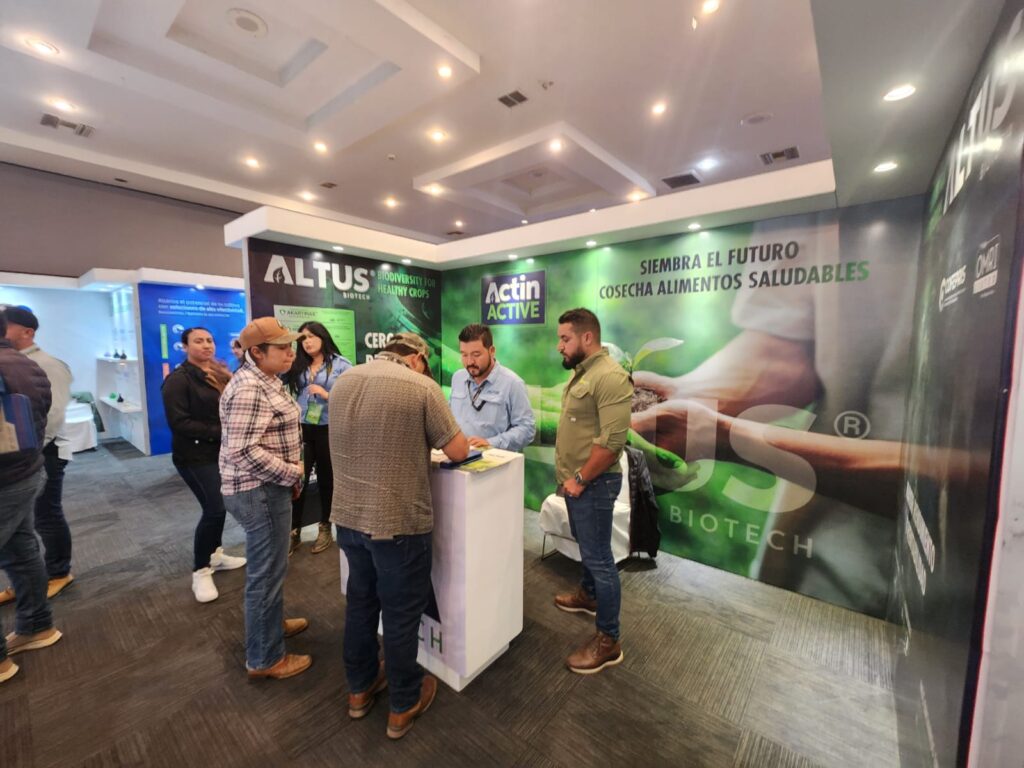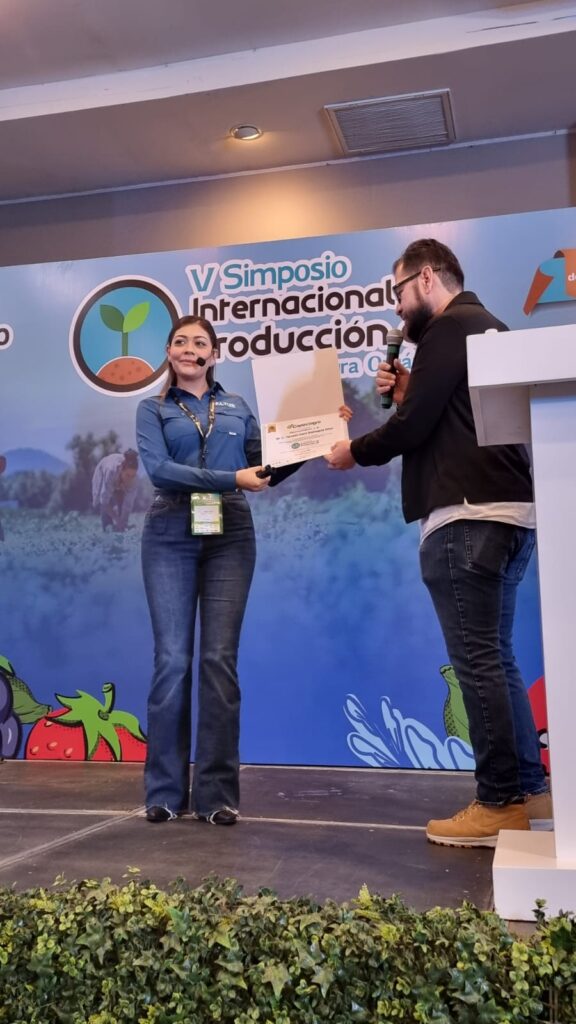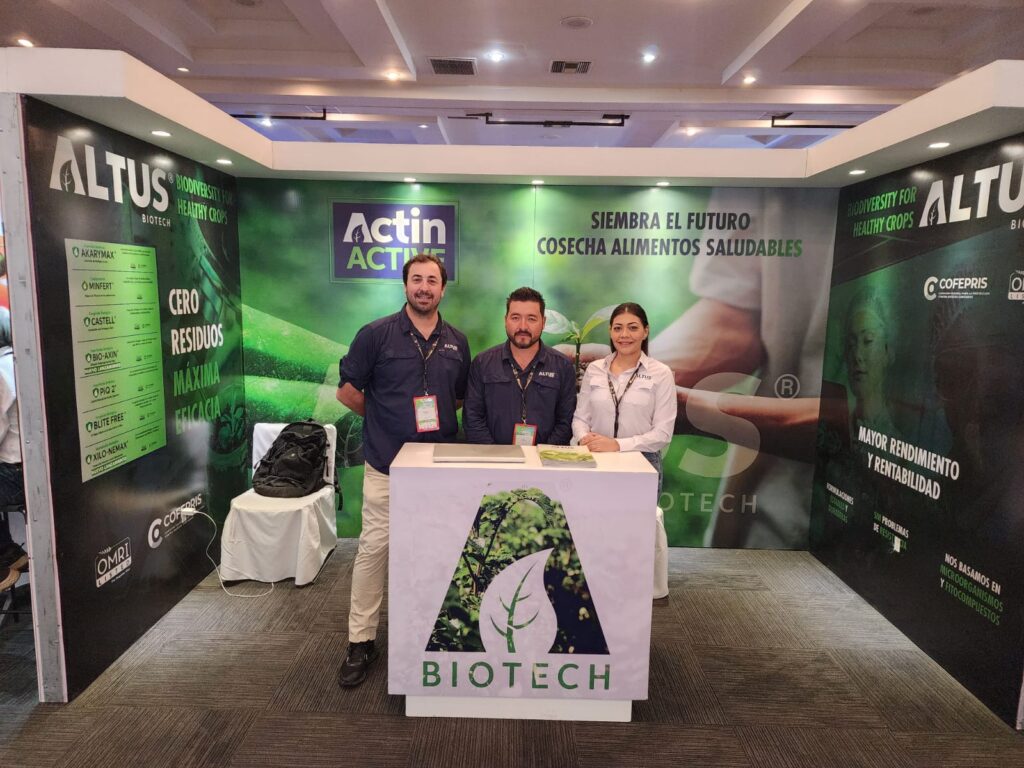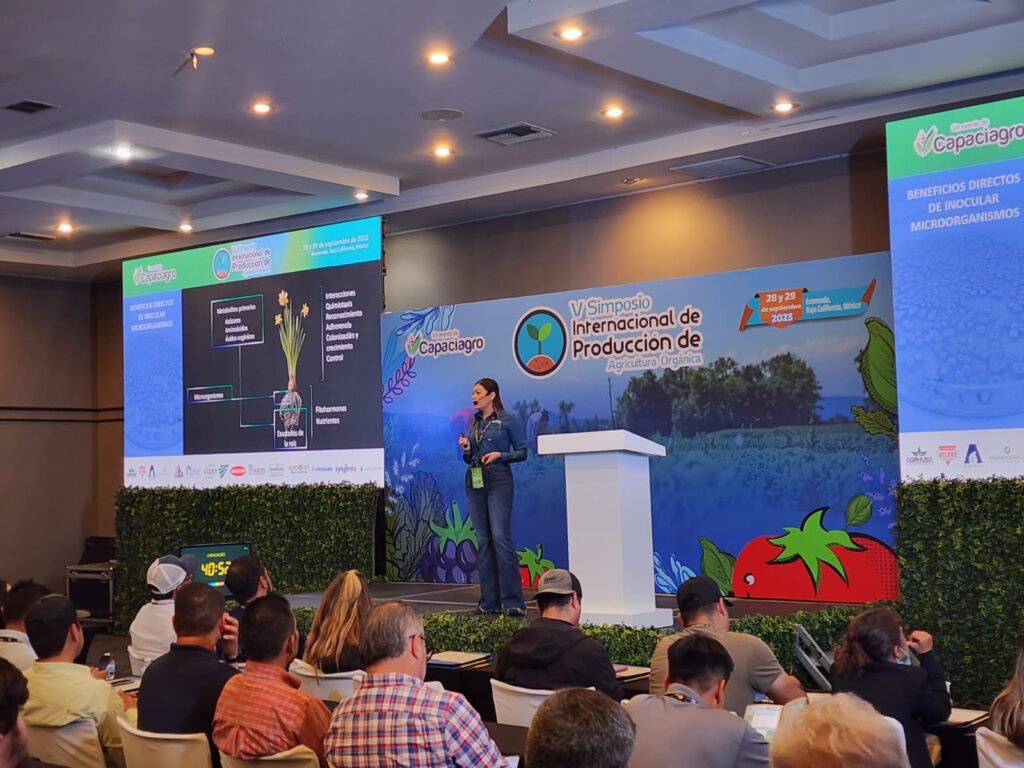Agriculture faces a number of global challenges that are crucial to food security, environmental sustainability and economic well-being. These challenges include population growth, biodiversity loss, agricultural regulation and policies, as well as increasing resistance to pests and diseases.
“We must be firmly committed to preserving biodiversity and promoting environmentally friendly agricultural practices.”
Yanett Gallegos, R&D+i Altus Biotech




In this context, sustainable agriculture becomes an essential alternative. At Altus Biotech, our technological base is the use of microorganisms and their secondary metabolites, specifically the genus Streptomyces, which is the most abundant and important of the actinomycetes or actinobacteria due to its ability to produce a wide variety of bioactive compounds, antibiotics and extracellular enzymes.
The products developed by Altus Biotech, based on Streptomyces, play a key role in promoting environmentally friendly agricultural practices. These microorganisms are highly efficient for biostimulation and bioprotection in agriculture. For example, Streptomyces BB016 has proven to be an exceptional tool for the control of thrips(Frankliniella occidentalis), while Streptomyces jofer shows outstanding effectiveness against Damping Off caused by Pythium spp, Rhizoctonia solani and Fusarium spp.
In addition, Streptomyces spp. has proven to be highly efficient in the control of diseases such as powdery mildew (Leveillula taurica) and the gall nematode(Meloidogine incognita). These microorganisms promote sustainable agriculture by providing effective alternatives to synthetic chemicals.
In summary, sustainable agriculture is presented as an answer to the current challenges of the agricultural industry. The choice of agricultural products based on microorganisms, such as those developed by Altus Biotech, not only contributes to food safety and environmental sustainability, but also represents a step towards a healthier and more balanced agricultural future.

